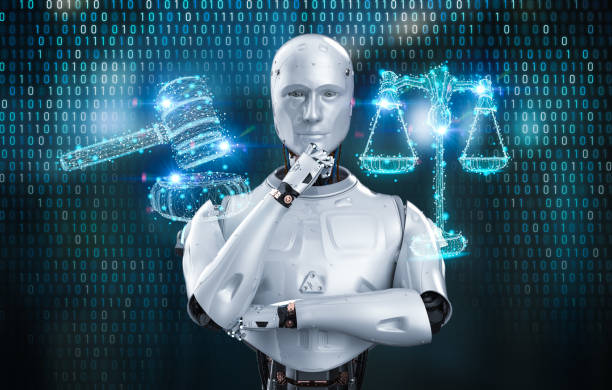Innovation has become a hallmark of the modern legal landscape, with technological advancements reshaping the way legal services are delivered and justice is administered. At the forefront of this innovation is the emergence of Artificial Intelligence (AI) attorneys, revolutionizing the courtroom experience and transforming the practice of law. This article explores the rise of AI attorneys and their impact on the legal profession.
Understanding AI Attorneys
AI attorneys, also known as legal AI or robo-lawyers, are software programs equipped with advanced algorithms and machine learning capabilities designed to perform various legal tasks traditionally handled by human lawyers. From legal research and document analysis to contract drafting and case prediction, AI attorneys are capable of automating a wide range of legal processes with speed and precision.
The Evolution of AI Technology
The development of AI technology has accelerated rapidly in recent years, fueled by advances in machine learning, natural language processing, and data analytics. These advancements have enabled AI attorneys to analyze vast amounts of legal information, identify relevant patterns and insights, and provide actionable recommendations to lawyers and clients.
Applications in the Courtroom
In the courtroom, AI attorneys are transforming the way legal proceedings are conducted and cases are argued. These AI-powered systems can assist lawyers in preparing arguments, analyzing evidence, and predicting case outcomes with a level of accuracy and efficiency that was previously unattainable. By leveraging AI technology, lawyers can enhance their advocacy skills and improve their chances of success in litigation.
Advantages of AI Attorneys
The rise of AI attorneys offers numerous advantages that are reshaping the legal profession and enhancing the administration of justice.
Efficiency and Productivity
One of the primary benefits of AI attorneys is their ability to streamline legal processes and improve efficiency. By automating routine tasks such as legal research and document review, AI attorneys can free up valuable time for lawyers to focus on more strategic and high-value activities. This increased productivity allows law firms to handle a greater volume of cases and deliver better outcomes for their clients.
Enhanced Decision-Making
AI attorneys can provide lawyers with valuable insights and recommendations to inform their decision-making process. By analyzing vast datasets and identifying relevant patterns and trends, AI algorithms can help lawyers develop more effective legal strategies and anticipate potential outcomes. This predictive capability enables lawyers to make informed decisions and achieve better results for their clients.
Challenges and Considerations
Despite the many benefits of AI attorneys, their adoption also presents challenges and considerations for the legal profession.
Ethical and Regulatory Issues
The use of AI in the courtroom raises complex ethical and regulatory questions, particularly concerning issues such as data privacy, confidentiality, and algorithmic bias. Lawyers must ensure that their use of AI complies with ethical standards and legal regulations governing the profession. This includes implementing robust data protection measures, ensuring transparency in AI algorithms, and addressing bias and fairness concerns.
Human Oversight and Accountability
While AI attorneys can assist lawyers in various aspects of legal practice, human oversight and accountability remain essential. Lawyers must exercise caution when relying on AI technology and ensure that they maintain control over the decision-making process. Ultimately, it is the responsibility of human lawyers to uphold ethical standards, advocate for their clients’ interests, and ensure that justice is served.
The Future of Legal Practice
As technology continues to evolve, the role of AI attorneys in the legal profession will only continue to grow. These AI-powered systems have the potential to transform the way legal services are delivered, making them more efficient, accessible, and equitable. While challenges exist, the rise of AI attorneys represents a significant step forward in the ongoing quest for innovation and excellence in the administration of justice.

